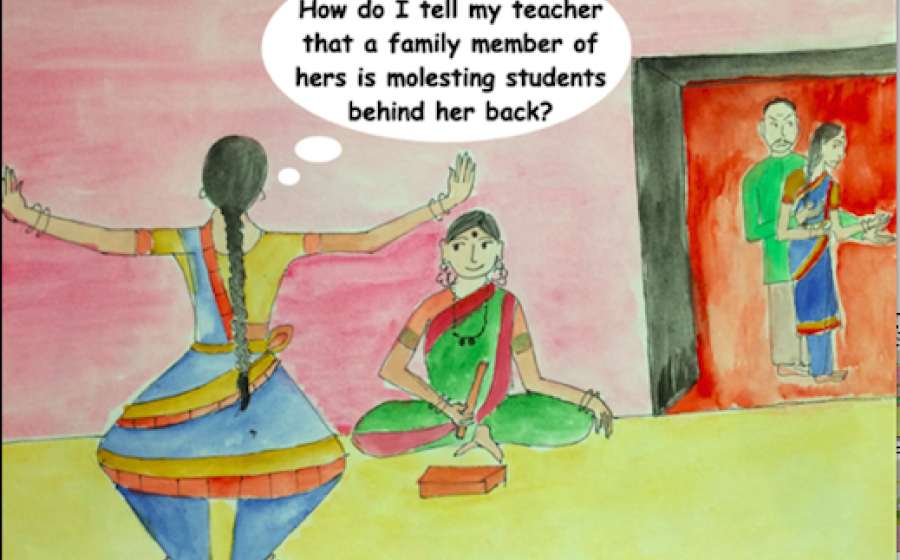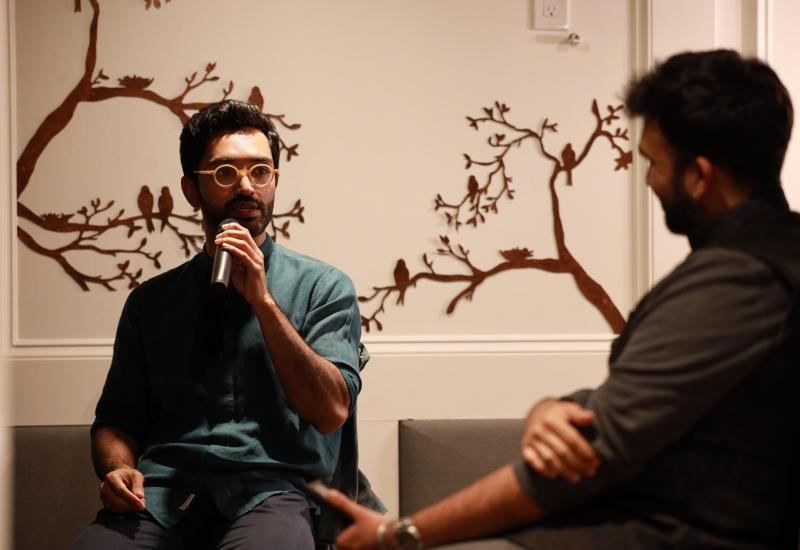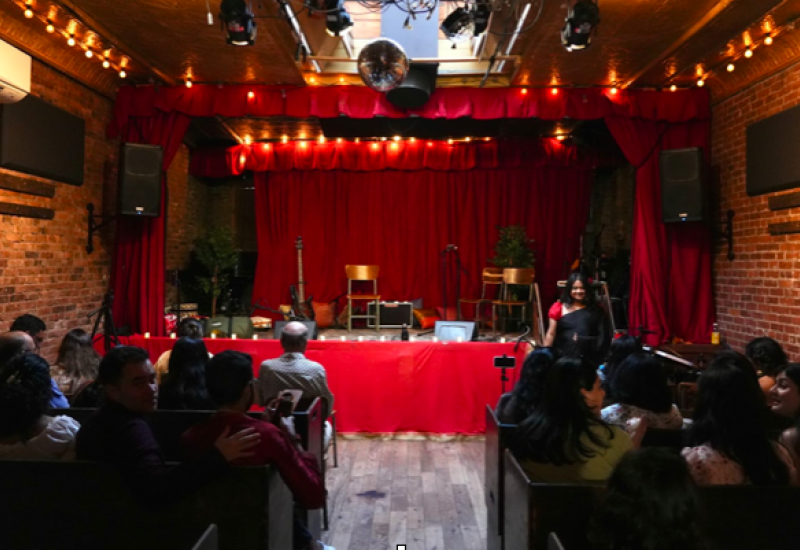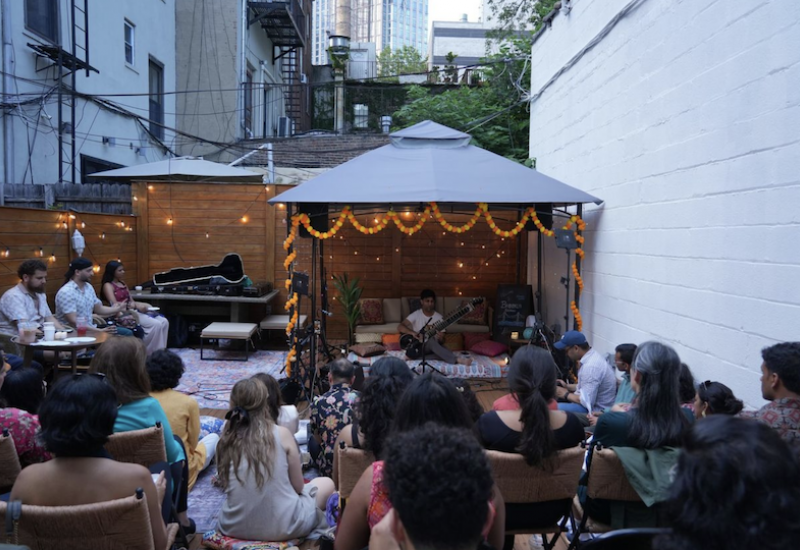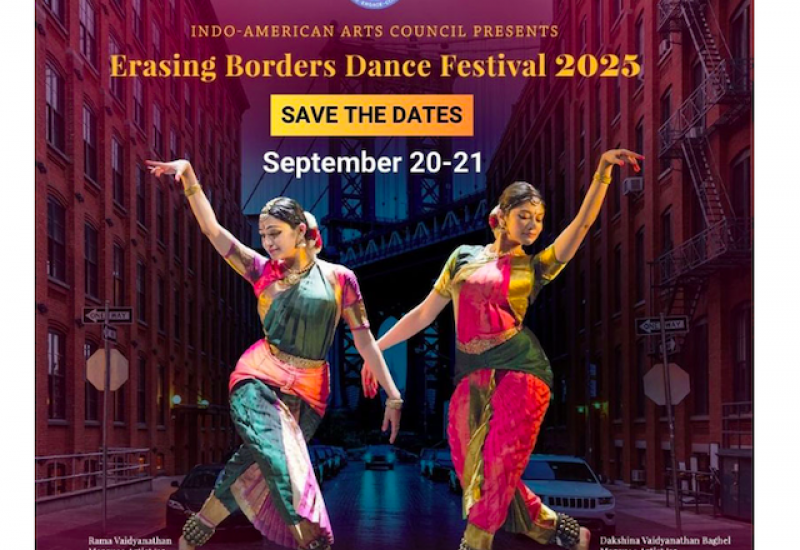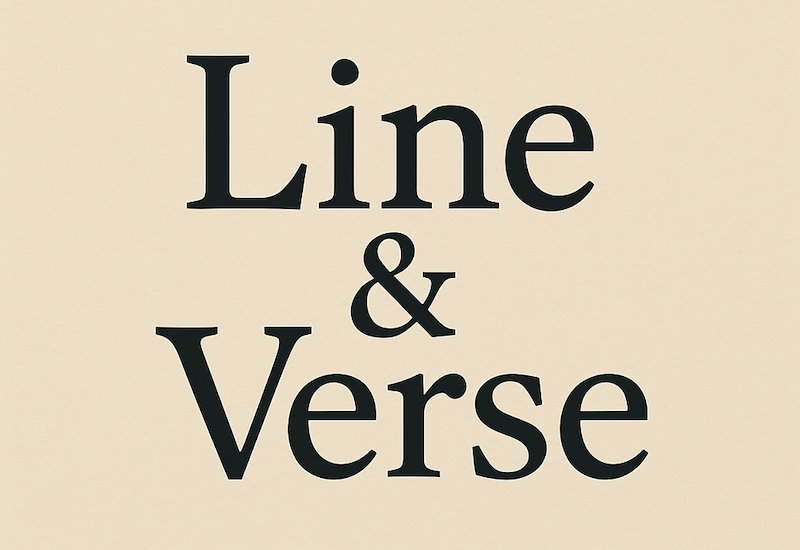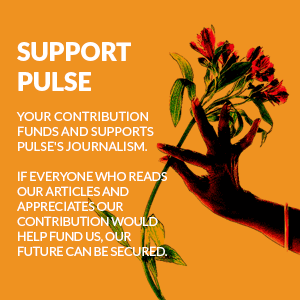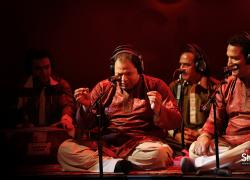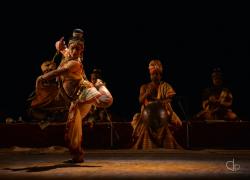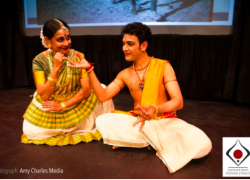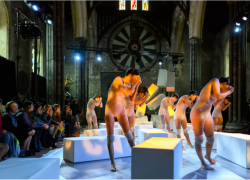Exposing the Darker Side- Cartoon_Natyam
Veena Basavarajaiah is a movement artist: a performer, creator, producer and activist based in Bengaluru. Her dance training ranges from bharatanatyam to kalaripayattu to contemporary. She has a Masters in Dance from Roehampton University in the UK. Her commitment to the dance field has made her look more closely and critically into the social and political dimensions of the dance ecology. With this lens she exposes the shortcomings/underbelly of the dance world.
You are now known for your satirical cartoons published under your handle @cartoon_natyam. How and why did you develop that strand of your work?
I have always been interested in creating work that engages with the audience in new and innovative ways. When you are a performer, your engagement with the audience is limited to the duration of the performance and they are often passive receivers of what you create. I am deeply interested in interactive work where not just the audience is in conversation with the artist but there is dialogue between teachers, students, writers, parents, collaborators and other stakeholders of the art industry. I feel everyone has a lot of questions to ask about their practice and purpose in the art field. I have always dabbled with doodling and drawing cartoons, with Cartoon_natyam I found a medium where I could explore a new medium of creating art that facilitates critical thinking with the help of illustrations. This initiative evolved into a platform on social media that elicits conversation and encourages people to think about issues that impact the art world.
You address particularly (though not exclusively) issues of abuse.
My page addresses various topics like economic disparity, caste based discrimination, gender, sexuality, body shaming, power hierarchies, patriarchy, along with many other issues of the art world. These cartoons are inspired by real life incidents and
experiences shared by various artists from around the world. Many of them stem from my own experience of being body shamed and discriminated against on the basis of caste, class, race and gender. I have also created many cartoons based on the #MeToo movement. Unfortunately, I, like many others in the dance field, have been subjected to sexual abuse. People find it very hard to believe that something like this could happen to a person who is so confident and so vocal. The truth is, when you experience some form of sexual misconduct from someone who you are familiar with in the dance field, it completely immobilizes you. Your relationship to your art is so enmeshed with your teacher and all the people in the dance class, that it becomes very difficult to even accept that you are violated in a place that you considered sacred and safe. It dismantles your identity and self worth in ways that cannot be explained and it takes a great deal of courage to accept for yourself that this trauma has occurred and it takes a greater amount of emotional labour to talk about it to the world. I greatly empathise with all the people who speak about sexual abuse and I will continue to amplify those voices through my art.
It makes me wonder if any dancer has escaped violation?
When we ask this question, I feel that we put the onus on the vulnerable to take all the measures to escape sexual abuse. The society has always told the woman what to wear and how to behave to avoid getting raped.
I think we need to change the conversation and ask how we can make art spaces more safe for everyone. How do we systematically address equations of power and hierarchy that operate in dance classes and other performance spaces? We need to find ways of holding people in power accountable for being casteist, racist, homophobic, transphobic, ageist, sexist or oppressive in any other way. We cannot address sexual abuse without addressing the systemic violence that operates in the world of art.
Do you miss the sheer joy of dancing unencumbered by all that is 'wrong' about the dance system?
Many of us started training in dance at a very young age and most of our learning was focused on the form and the aesthetics. The socio-political context and the history of the form was not part of the pedagogy. We simply focused on how joyful it was and didn't think about how it impacts our bodies and minds as women, citizens and individuals. Innocence is definitely blissful when
we are younger but ignorance is a choice we make as adults when we decide not to educate ourselves and understand that art is deeply political. The awareness definitely impacts the way I move and create art. I find immense joy in creating work that questions, critiques and is also deeply personal and political.
You have also been curating the Cartoon Natyam Performance Series, what was the idea behind it? How did you choose the artists?
I have been engaging with the political as a performer, choreographer, writer and also as a theatre maker. Cartoon_natyam gave a rare opportunity to curate conversations on a social media platform. Taking this idea of dialogue between art, practice and audience further, I started curating a series of live performances inviting artists who are creating political work to share their art and practice. It is true that all work is political because we are situated in a political context, but it takes a lot of vulnerability to be explicitly political while creating work that is also personal. We do not have too many spaces that provide support for new and experimental work.
The series aimed at creating a platform where artists could focus on the process and get feedback that they require for their journey. I have been curating this series in collaboration with Natasha Iype who graciously offered the space of Courtyard Koota in Bengaluru for these performances. The series started in November 2022 and so far we have had six performances and each of these artists have created and presented works that are unique and brave. Priyanka Chandrashekar, a choreographer & performer who is also a lawyer explored traditional compositions through the lens of justice and equity. Preethi Bharadwaj with her work 'Me & My Trash' looked at the human relationship to art and everything else that we generate using the concept of trash. Talin Subbaraya, a queer artist wove together personal stories about his love for dance while questioning casteism, bullying and the guru-shishya hierarchy. Nisha Abdulla's 'We Push the Sky' was a solo theatre work that spoke about being a Muslim in the current political climate in the country. The Nayaki Project (currently Project Darling) by Sharanya Ramprakash was an ensemble work that brought to light the history of the forgotten women of Kannada Theatre and how it is currently impacting us women in the art world.
Where next will your work take you?
In 2023, I created a play titled Kaaya in collaboration with Kriyative theatre that was inspired by the vachanas (short poems) of 12th-century feminist poet Akkamahadevi, and we are planning to have more shows in the future. I have been commissioned by various art organisations like Unrehearsed Art Residency to create cartoons that are political and help highlight artists that are doing meaningful work. Cartoon_ natyam has been invited to be part of the Serendipity Arts Festival in Goa (December 2023) and I am very curious how this interactive installation can facilitate dialogue in a public space. I hope to continue to create meaningful work, collaborate with artists that help me grow, curate artists that are brave and will continue to draw cartoons to reflect and critique our lived reality.
The artist’s digital installation will be mounted at the Serendipity Festival in Goa from 15-23 rd December at The Courtyard, GMC Complex
https://www.serendipityartsfestival.com/exhibition/cartoon-natyam
To learn more about Veena Basavarajaiah’s work visit https://www.instagram.com/cartoon_natyam/

